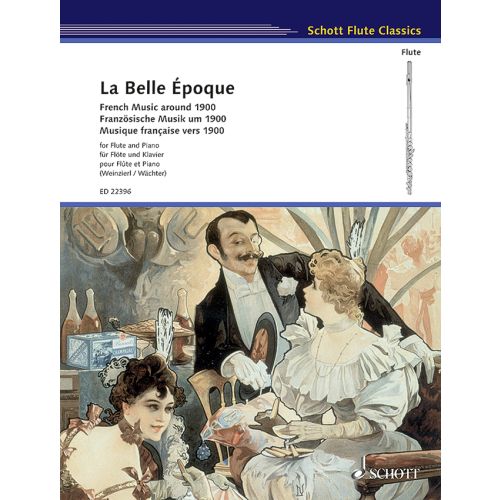La Belle Époque - tous les téléchargements
Détails du produit
Description
This anthology contains 22 short pieces from the belle époque, around the turn of the 20th century in France. Suitable for the intermediate flautist, the pieces are perfect for pupils’ concerts or competitions. These include originals and contemporary arrangements, all based on first editions and autographs respectively.
The belle époque era – about the time of peace in Europe between 1871 and 1914 – brought progress and development in many areas: technologically, economically, socially, and in the arts. Composers like Claude Debussy, Gabriel Fauré, Camille Saint-Saëns, Maurice Ravel were key figures in this era. The centre of it all was Paris, where the 'New French School' of flute playing developed with the introduction of the Böhm flute.





